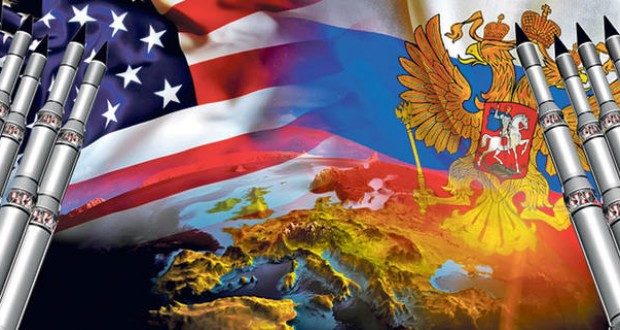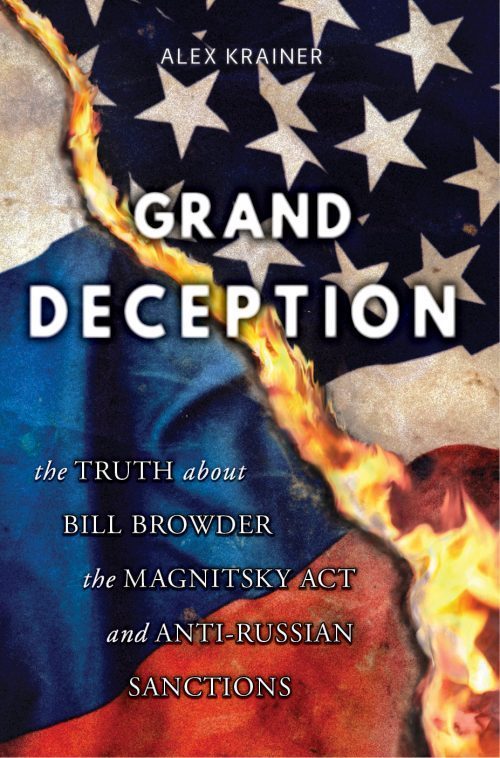- "Grand Deception" - link to pdf / kindle / nook versions
- "Grand Deception" - link to paperback version (Red Pill Press)
Så hvorfor gå igennem alle disse problemer? Der er en baggrund for min tilskyndelse til at skrive Grand Deception. Som ung mand gennemlevede jeg udbrudet af krig i det tidligere Yugoslavien og tjente i den kroatiske hær under krigen. Det bemærkelsesværdige ved forstadierne til den krig var, at de fleste mennesker kun få dage før udbruddet troede, at krigen aldrig ville ske. Den syntes utænkelig. Jeg troede helt afgjort ikke, at den ville indtræde.
Kommentar: Delvist oversat af Sott.net fra SOTT Focus: Alex Krainer: Why I Wrote Grand Deception - The Truth About Bill Browder
War changes everything
Yugoslavia's ethnicities, cultures and religions were intertwined in many ways over many generations. While haters did exist, most people by far did not want to hate their neighbours, did not want a war and positively wanted to preserve peace. However, once the shooting, the victims and the destruction started to happen, everything changed. Our societies rapidly polarized: nuanced, empathic regard for the other side quickly went out of style, pacifism became unpatriotic, and political opposition became tantamount to treason. People on all sides closed ranks behind their leaders, patriotism and readiness to fight became supreme virtues and the collective psyche rapidly morphed into the black and white, "us against them" mode. The business of war then became the nation's primary preoccupation.
Having lived through this makes it hard for me to be relaxed about Bill Browder's relentless, unhinged demonization of Russia and its leadership. The effectiveness of his anti-Russian campaigning indicates that there's a powerful network backing him, and that their agenda far eclipses Browder's supposed fight for justice for lawyer-accountant Sergei Magnitsky (see Tom Luongo's recent scoops corroborating this). His campaign has in fact served an unrelenting escalation of the west's hostile posturing toward Russia, which is worse than what we've seen during last century's Cold War against the Soviet Union.
It is not too late
At present, we can still talk about Russia and Vladimir Putin in somewhat nuanced terms, exchange opposing opinions and disagree. A hot war with Russia is still unthinkable to most people. For me however, it is not difficult to imagine that one provocation, one false-flag incident credibly attributed to Russia could dramatically change all that. Our societies might suddenly polarize and the collective psyche could morph into the black-and-white, us against them mode... Nobody should think this impossible: two world wars had already broken out on the European continent and we ought to take the lessons of the past seriously lest we complacently sleepwalk into the third one.
This, in brief is why I wrote Grand Deception. My intent was to unmask Bill Browder's narrative, which is being used to bolster the rationale for the west's hostile posturing toward Russia. I also wanted to counter the ceaseless demonization of Russia and of Vladimir Putin. Deception and demonization serve to bring about public consent for, or at least a passive acquiescence to war.
Why the demonization of Putin is dangerous
The demonization of the person of Vladimir Putin might be particularly dangerous as it predisposes the public, especially those who deem themselves fair minded and progressive, to accept war perhaps to help the Russian people free themselves from the tyranny and attain greater democracy and prosperity. While a war for resources or hegemony is always unacceptable to the public, a war for the reasons of human rights is a different thing altogether. I have met depressingly many otherwise well-meaning and learned intellectuals strain to justify even clearly illegal wars, so long as they are perceived to be motivated by human rights considerations.
Thus, starting a war always involves casting the target nation's leader in the role of the villain with no redeeming qualities. Examples include Slobodan Milosevic (Serbia), Saddam Hussein (Iraq), Moammar Gaddafi (Libya) and Bashar Al Assad (Syria). As the media do their part, it becomes very difficult to find any positive - or even somewhat balanced - coverage of the designated villain.
Vladimir Putin has been cast in the role of villain almost from the very beginning of his Presidency. Unflattering, negative coverage is being produced almost without interruption, and ceaseless repetition of allegations is used where real evidence is should be presented. A good example is the way Bill Browder "proved" Putin's corruption. His proof is laughable but this hasn't kept numerous media personalities from treating him as an authority and repeating his allegations as unquestionable facts. As suspicious as such blatant bias should be, the strategy seems to be effective. Today most westerners seem ready to believe that Putin is a tyrant, that he routinely has critics and political rivals assassinated, that he amassed a vast personal fortune and that he runs Russia as his own personal fiefdom.
As the demonization campaign escalated to hysteria in the aftermath of the Ukraine crisis in 2014, I decided to do some independent research and try to discern the other side of Vladimir Putin: who he is as a person. Did he deserve all the slander he receives daily from the western press? Do his actions show him to be a vicious tyrant? Or are we being lied to? For the reasons I've just detailed, I've devoted an important part of the Grand Deception to this issue and will be sharing my research in a series of articles over the coming several days.
Alex Krainer is a hedge fund manager and author. His book, twice banned by Amazon in September 2017 and again in August 2018 is now available in pdf, kindle, and epub formats at the following link Grand Deception: Truth About Bill Browder, the Magnitsky Act and Anti-Russian Sanctions. Paperback version published by Red Pill Press is now available here. Alex also wrote one book on commodities trading.Originally published on The Naked Hedgie.





Læserkommentarer
dig vores Nyhedsbrev